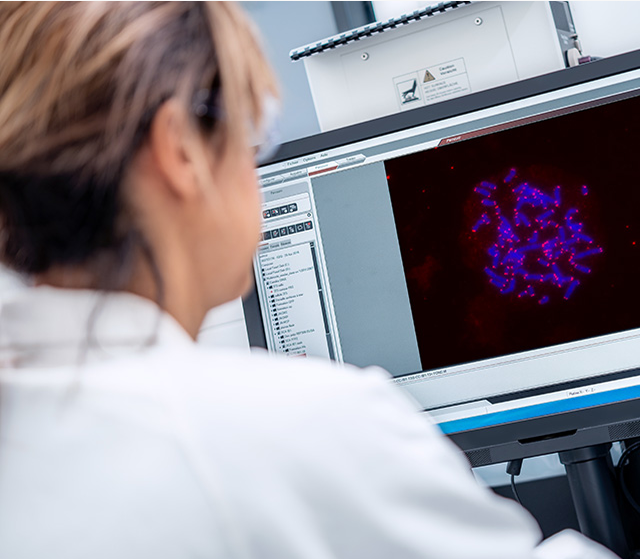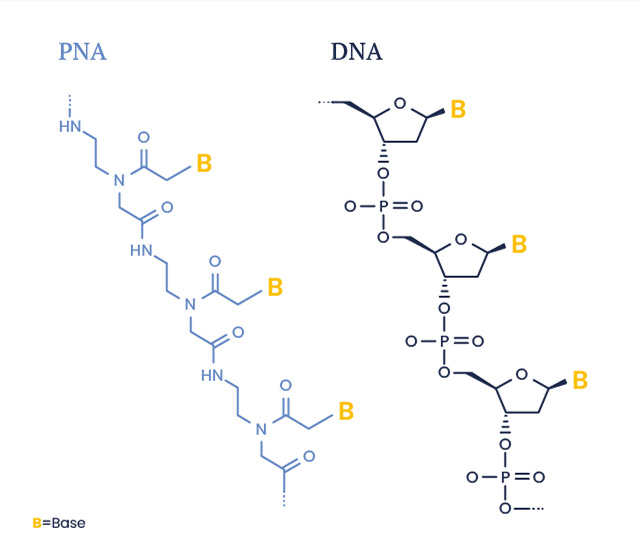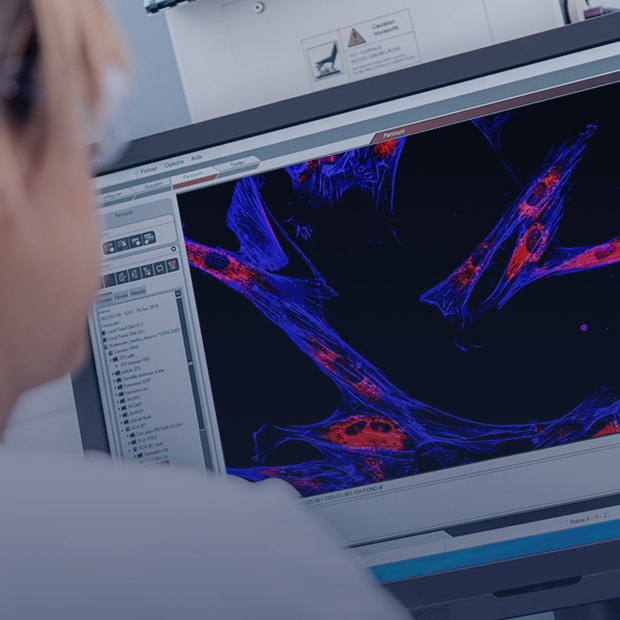CUSTOM OLIGO SYNTHESIS
Custom PNA Oligos
With over 40 years of expertise in oligonucleotide synthesis, we provide high-quality, customizable PNA oligonucleotides for research applications. Available at high purity levels of 90% and 95%, our PNA solutions support researchers in achieving their molecular biology goals.
Specifications of our PNA-Based
oligonucleotides
Our PNA oligonucleotide services are designed to ensure high-quality, reproducible results
across various research applications. We offer a range of labeling modifications to enhance PNA
functionality and tailor each oligonucleotide to your specific experimental needs. Contact us to
discuss your project, and our experts will work with you to determine the best approach for
delivering the optimal sequence for your research.
| Specification | Details |
|---|---|
| Purity | 90% and 95% (unlabeled PNA bases) |
| Minimum Delivered Quantity | Unlabeled PNA bases : 50 nmol Labeled PNA bases : 25 nmol Other quantities available on request |
| Oligo Length | 6 to 23 mers |
Modifications for PNA Oligos
We offer various modifications to enhance the functionality of PNA oligonucleotides. These modifications allow for improved detection, conjugation, and hybridization properties.
- Fluorescent & Quencher Labels : FAM, ROX, ATTO, BHQ...
- Biotin Labeling Linkers & Spacers : C3, C4, C6, C12, PEG...
- Functional Groups : Amine, Thiol, Acetylation...
- Peptide Conjugation
- Backbone Modifications : alpha & gamma modification
What are PNAs?
Peptide Nucleic Acids (PNAs) are synthetic analogs of DNA and RNA, with a peptide-like backbone that replaces the traditional sugar-phosphate structure. This unique composition eliminates the negative charge typically found in nucleic acids, resulting in higher binding affinity, superior specificity, and enhanced stability. PNAs are widely used in applications where precise and reliable nucleic acid targeting is essential.
Key features of PNAs
PNAs exhibit remarkable hybridization behavior and unique properties compared to traditional
nucleic acids, making them the preferred choice in many advanced applications.
Higher
sensitivity
A single mismatch in a 15 mers PNA/DNA duplex drops the Tm by 15°C, compared to 11°C for DNA/DNA.
Faster
hybridization
PNA/DNA (or RNA) hybridization occurs over 100 times faster than DNA/DNA (or RNA) hybridization.
Enhanced
Stability
PNAs resist enzymatic degradation and remain stable across temperatures and chemicals.









